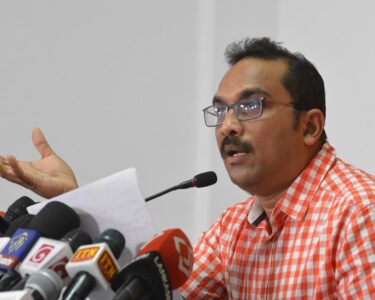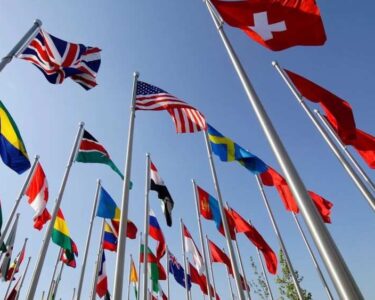At the recent UN General Assembly, a wave of concern about Iran’s human rights record crested in a vote on a resolution expressing deep disquiet. While 78 nations rode this wave, a current of dissent ran counter, pulling 30 countries, including Sri Lanka, in the opposite direction.
The UN General Assembly adopted a resolution on the human rights situation in Iran due to ongoing concerns about a variety of issues, including:
Violations of women’s rights: The resolution specifically condemned Iran’s targeted repression of women and girls, both online and offline. This includes mandatory headscarves, limitations on travel and employment, and unequal inheritance rights.
Arbitrary detentions and repression of dissent: The resolution expressed concern about the imprisonment of human rights defenders, protesters, journalists, and lawyers, often without.
air trial or due process. This includes individuals who speak out against the government or advocate for greater freedoms.Excessive use of force against protesters: The resolution raised concerns about the potential for violence against peaceful demonstrators, with reports of excessive force and crackdowns on protests
The resolution itself painted a stark picture of human rights in Iran, casting a spotlight on systemic discrimination against women, arbitrary detentions of activists, and the potential chilling effect of a proposed bill on protest rights. Yet, Sri Lanka, situated in the Indian Ocean’s embrace, chose to stand against this tide of condemnation. Why, one might ask, would a nation seemingly rooted in democratic principles cast a dissenting vote on a matter of such moral weight?
One potent explanation lies in the delicate dance of diplomacy. Iran occupies a strategic position in the region, wielding influence over energy resources and security corridors. For Sri Lanka, maintaining cordial relations with Iran could hold economic and political benefits, while alienating them might incur unforeseen costs. This pragmatic calculus, where human rights concerns are weighed against diplomatic expediency, is a complex dance many developing nations find themselves performing.
Another possibility lies in the subjective lens through which human rights are viewed. While the Western world often champions a universalistic approach, Sri Lanka’s historical and cultural context might inform a different perspective. The legacy of its own internal conflict, where Western intervention was perceived as intrusive, might shape its stance on international censure of another nation’s internal affairs. This cultural relativism, while not condoning human rights abuses, suggests a nuanced understanding of how historical baggage can influence contemporary approaches to sensitive issues.







